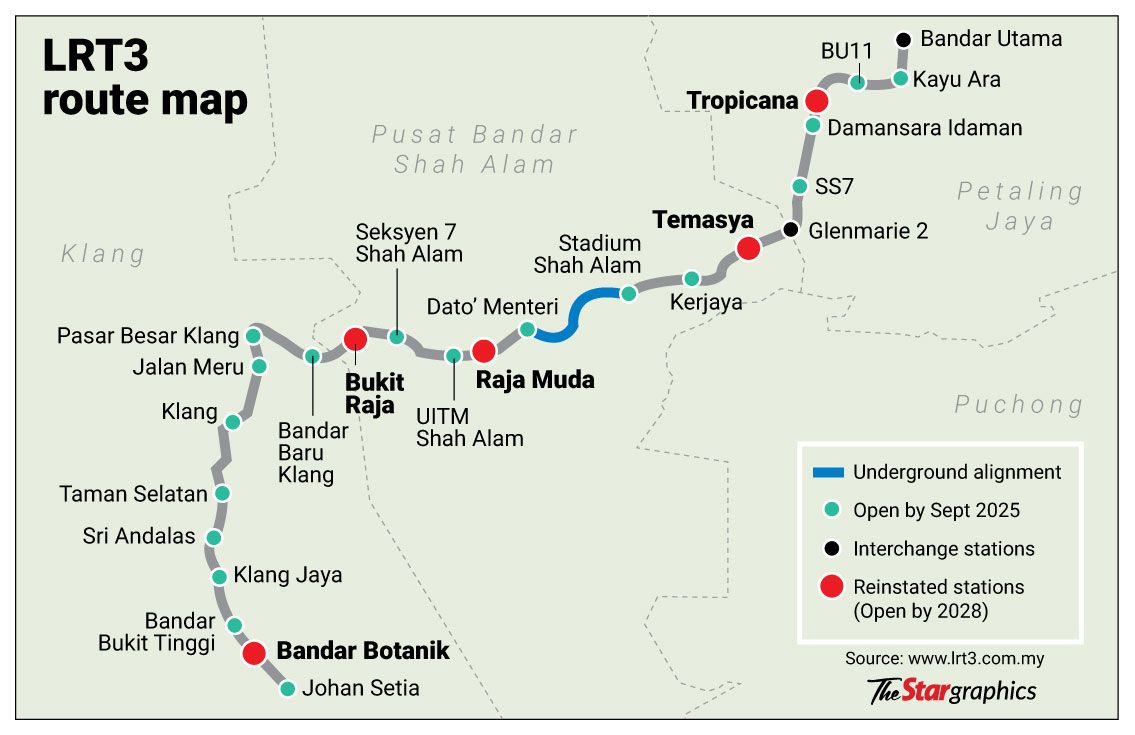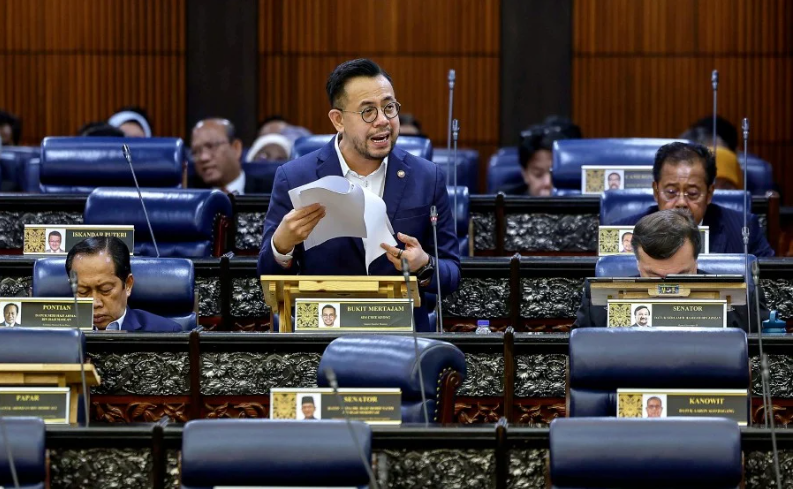1. LRT3 Expansion: Enhancing Connectivity in the Klang Valley
The LRT3 (Light Rail Transit Line 3) expansion project is a major milestone in Malaysia's public transportation development. Set to be completed in 2025, this expansion aims to significantly enhance connectivity across the Klang Valley, including key areas such as Petaling Jaya, Bandar Utama, and Klang. The new route will cater to an increased number of passengers, offering a more efficient, affordable, and eco-friendly alternative to road travel.

With the introduction of additional stations and improved connectivity, commuters will have easier access to shopping districts, business hubs, and residential areas, ultimately reducing the reliance on private cars. The LRT3 expansion is expected to alleviate traffic congestion in the Klang Valley, helping to reduce carbon emissions, which aligns with the nation’s sustainability goals.
Moreover, the LRT3 system will integrate seamlessly with existing transport networks such as the LRT, MRT, and KTM Komuter, enabling smoother intermodal travel for Malaysians. The entire project, once completed, will provide a reliable and convenient transportation option for thousands of daily commuters, marking a significant step toward Malaysia’s push for sustainable urban development.
2. Minimum Wage Hike: A Step Toward Economic Equity
In a bid to address rising living costs and improve the quality of life for low-income earners, the Malaysian government is planning a minimum wage increase in 2025. This wage hike is aimed at ensuring that workers across the nation receive fair compensation for their labor, especially as inflation and the cost of living continue to rise.
The new minimum wage will have a profound impact on workers in sectors such as retail, manufacturing, and services, where employees typically earn lower wages. By raising the minimum wage, the government hopes to stimulate consumer spending, which could, in turn, boost Malaysia's overall economic growth. Additionally, higher wages will help reduce income inequality and promote social stability, ensuring a more inclusive economy.
The wage hike is expected to be implemented across various states and industries, with special consideration for regions where the cost of living is higher. This move will also likely improve employee morale and productivity, as workers will feel more valued and motivated. However, businesses will need to adjust to the increase in labor costs, and many may implement strategies to balance the wage hikes with operational efficiency.
3. Digital IDs: Revolutionizing Administrative Processes and Enhancing Security
In a digital-first world, the introduction of Digital IDs in Malaysia by 2025 will be a game-changer for both government operations and everyday citizens. The digital identification system will replace traditional physical IDs, providing a more secure and efficient way for Malaysians to access services and conduct transactions online.
The digital ID will function as a secure, verified online identity, enabling citizens to authenticate their identity easily and safely when interacting with government agencies, businesses, and financial institutions. With the rise of online services and the increasing need for secure digital transactions, the digital ID will ensure that personal data is protected from potential threats like identity theft and fraud.
The introduction of Digital IDs will also streamline numerous administrative processes. Citizens will be able to access government services, renew licenses, pay bills, and register for various programs online without the hassle of physical documents. This will significantly improve efficiency and convenience, saving both time and resources for individuals and government agencies.
Moreover, the digital ID will be integrated with biometric authentication systems, ensuring a higher level of security compared to traditional forms of identification. The adoption of digital IDs is expected to be a major step toward Malaysia’s vision of becoming a digital economy by fostering innovation, reducing bureaucracy, and making everyday tasks more seamless.

The Impact of These Developments on Malaysia’s Future
Together, the LRT3 expansion, the minimum wage hike, and the digital ID initiative will play a significant role in shaping Malaysia’s future by improving mobility, economic equity, and digital governance.
- LRT3 Expansion will enhance connectivity, reduce traffic congestion, and promote eco-friendly transportation, contributing to a greener, more sustainable future for Malaysia.
- Minimum Wage Increase will uplift the lives of workers, ensure fair wages, and stimulate the economy, helping Malaysia build a more inclusive and equitable society.
- Digital IDs will revolutionize administrative processes, providing more convenience and security for Malaysian citizens while advancing the country’s progress toward becoming a digitally-driven nation.

As these projects take shape in 2025, they will undoubtedly have a lasting impact on Malaysia’s social, economic, and technological landscape, propelling the country toward a brighter and more prosperous future.
Subscribe to us:
